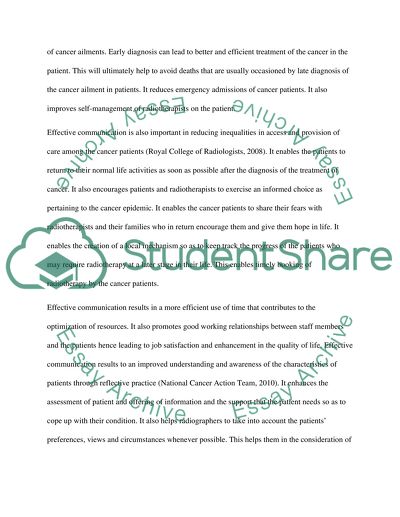Cite this document
(“Effetive communication in radiotherapy Essay Example | Topics and Well Written Essays - 2000 words”, n.d.)
Effetive communication in radiotherapy Essay Example | Topics and Well Written Essays - 2000 words. Retrieved from https://studentshare.org/health-sciences-medicine/1697837-effetive-communication-in-radiotherapy
Effetive communication in radiotherapy Essay Example | Topics and Well Written Essays - 2000 words. Retrieved from https://studentshare.org/health-sciences-medicine/1697837-effetive-communication-in-radiotherapy
(Effetive Communication in Radiotherapy Essay Example | Topics and Well Written Essays - 2000 Words)
Effetive Communication in Radiotherapy Essay Example | Topics and Well Written Essays - 2000 Words. https://studentshare.org/health-sciences-medicine/1697837-effetive-communication-in-radiotherapy.
Effetive Communication in Radiotherapy Essay Example | Topics and Well Written Essays - 2000 Words. https://studentshare.org/health-sciences-medicine/1697837-effetive-communication-in-radiotherapy.
“Effetive Communication in Radiotherapy Essay Example | Topics and Well Written Essays - 2000 Words”, n.d. https://studentshare.org/health-sciences-medicine/1697837-effetive-communication-in-radiotherapy.


